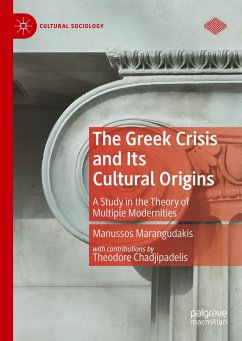This original analysis of modern Greece's political culture attempts to present a "total social fact"-a coherent and complex representation of Greek socio-political culture-to identify the cultural causes of Greece's recent disastrous economic crisis. Using a culturalist frame inspired by the Yale Strong Program, Marangudakis argues that the core cultural orientations of Greece have determined its politics-Greek secular culture flows out of the religion of Eastern Orthodoxy with its mysticism, icons, and general "ortherworldly-nesses." This theoretical discussion, bringing together Eisenstadt, Michael Mann, Banfield, and Taylor, is complemented by an innovative use of survey data, processed by political scientist and statistician Theodore Chadjipadelis. The carefully deployed quantitative data demonstrate that the culture previously described is actually shared by people living in Greece today. In his sweeping conclusion to this thorough cultural analysis, Marangudakis reflectson the prospects of Greek cultural recovery through the construction of a non-populist civil religion.
Bitte wählen Sie Ihr Anliegen aus.
Rechnungen
Retourenschein anfordern
Bestellstatus
Storno








